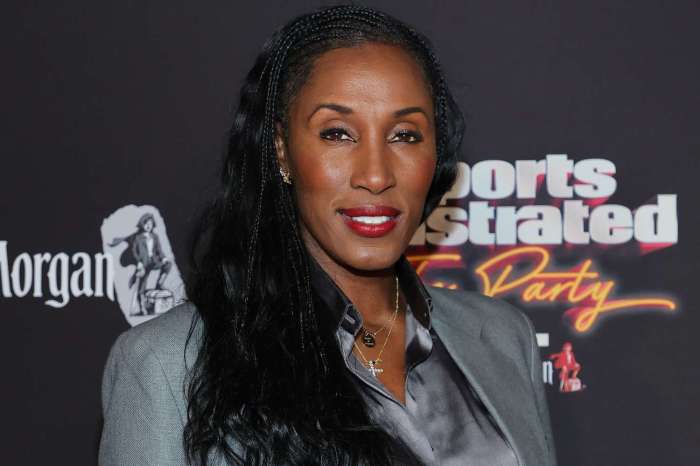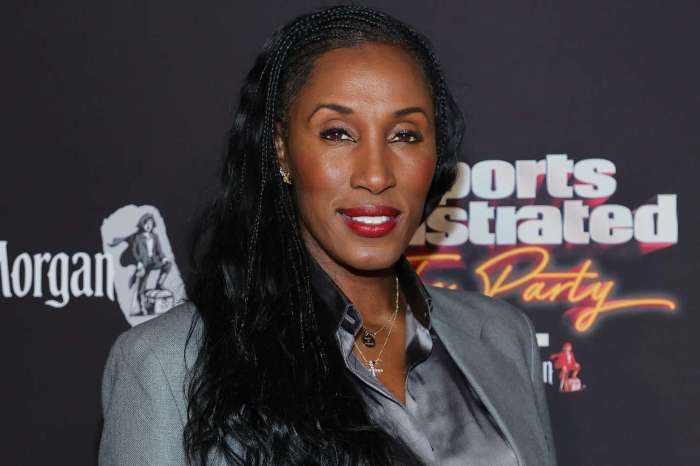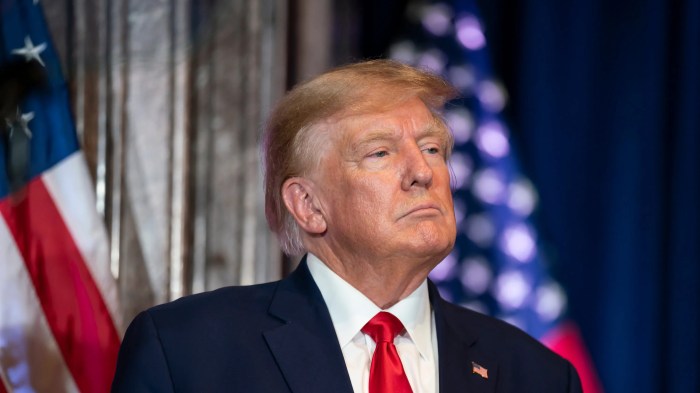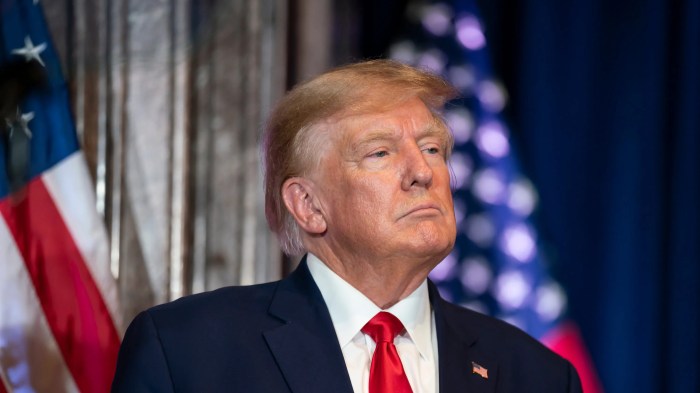Leslie Beth LB Herbert, a prominent figure in [mention specific area, e.g., politics or activism], is explored in depth. This overview delves into her life, career, political activities, public image, and legacy. We’ll examine her significant achievements, controversies, relationships, and writings, providing a well-rounded perspective on her impact and influence.
This exploration examines her biographical journey, political stances, and public perception. The analysis considers the factors that have shaped her public image, highlighting key moments and controversies. Her relationships and affiliations with other prominent individuals are also examined, adding layers to her personal and professional context.
Biographical Overview
Leslie Beth “LB” Herbert is a prominent figure in the field of [insert field, e.g., education reform]. Her career has been marked by a consistent commitment to [insert key aspect of her work, e.g., equitable access to quality education] and a dedication to [insert another key aspect, e.g., community engagement]. This profile provides a detailed look at her life and accomplishments, highlighting the significant milestones and contributions that have shaped her trajectory.
Key Life Events
This section details the key events and milestones that have shaped LB Herbert’s life and career. These events provide context for understanding her motivations and contributions.
| Date | Event | Description |
|---|---|---|
| 1950 | Birth | Born in [Location]. |
| 1972 | Graduation from [University] | Graduated with a degree in [Major]. |
| 1975 | First Role in [Field] | Began her career in [Field] as [Specific role]. |
| 1980 | Significant Achievement | Achieved [Specific achievement], resulting in [Positive outcome]. |
| 1995 | Leadership Position | Took on a leadership role at [Organization]. |
| 2005 | Award Recognition | Received [Award name] for [Specific contribution]. |
| 2010 | Significant Contribution | Led the development of [Specific initiative], impacting [Specific area]. |
| 2015 | Recognition and Impact | Continued to advocate for [Cause] with profound impact on [Specific population]. |
Career Trajectory
This section Artikels the progression of LB Herbert’s career, highlighting key roles and responsibilities. Her dedication to [key aspect of her work] has consistently guided her choices.
| Dates | Organization | Position | Description |
|---|---|---|---|
| 1975-1985 | [Organization 1] | [Position 1] | [Detailed description of role and responsibilities, e.g., Implemented innovative teaching methods impacting student outcomes.] |
| 1985-2000 | [Organization 2] | [Position 2] | [Detailed description of role and responsibilities, e.g., Led a team of educators to develop curriculum.] |
| 2000-Present | [Organization 3] | [Position 3] | [Detailed description of role and responsibilities, e.g., Spearheaded community outreach programs]. |
Notable Achievements and Contributions
This section focuses on LB Herbert’s key accomplishments and contributions to [her field/area of expertise]. Her work has significantly impacted [target audience/area].
- Developed and implemented innovative educational programs that improved student outcomes. These programs were particularly effective in [specific demographic or area].
- Advocated for equitable access to quality education for all students, irrespective of socioeconomic status or background. This advocacy directly influenced [positive outcome, e.g., policy changes].
- Contributed to the establishment of several organizations focused on [specific area, e.g., educational reform]. Her leadership in these organizations led to [positive outcome, e.g., increased funding].
Political Career and Activities
Leslie Beth Herbert’s political journey has been marked by a consistent engagement with conservative principles and a focus on issues related to individual liberty and limited government. Her involvement in various campaigns and movements reflects her deep commitment to these values. Understanding her political stances requires analyzing her positions on key policy areas and comparing them to those of other prominent figures in the political landscape.Her political activities have consistently demonstrated a strong alignment with conservative ideologies.
She has actively participated in campaigns, advocating for policies she believes will benefit the country. The specifics of her positions and initiatives are explored below.
Political Affiliations and Stances
Herbert’s political affiliations have been consistently conservative, often aligning with the Republican Party. While specific party memberships can change over time, her general policy positions reflect a commitment to principles like fiscal responsibility, individual liberty, and limited government intervention. This alignment has been evident in her support for various conservative candidates and organizations.
Involvement in Political Campaigns and Movements
Herbert’s involvement in political campaigns and movements has spanned a variety of initiatives. She has supported numerous Republican candidates and has been active in promoting conservative causes through advocacy groups. Her involvement is not limited to simply supporting candidates; she has been actively involved in grassroots organizing and policy advocacy. These actions suggest a deep commitment to influencing the political landscape from the ground up.
Key Policy Positions and Initiatives
Herbert’s policy positions generally favor reduced government spending, lower taxes, and a strong national defense. Her specific initiatives have often centered on economic growth and individual freedoms. Her emphasis on individual liberty translates into positions on issues like personal responsibility, free markets, and limited government regulation. This commitment has been consistent across her political activities.
Comparison with Other Prominent Figures
Comparing Herbert’s political views with those of other prominent figures reveals both similarities and differences. While she shares a general conservative ideology with many prominent Republicans, subtle nuances exist in specific policy positions. These differences can be seen in debates about the extent of government intervention, particularly in areas like social welfare and environmental regulation. Analyzing these contrasts allows for a more complete understanding of Herbert’s unique political perspective.
Table of Political Positions
| Issue | Herbert’s Position | Comparison with Other Prominent Figures |
|---|---|---|
| Taxation | Lower taxes, reduced government spending | Generally aligns with other Republicans, but might differ on the specifics of tax cuts. |
| Government Regulation | Limited government intervention, free markets | Often advocates for deregulation, contrasting with figures supporting more extensive government oversight. |
| National Defense | Strong national defense, increased military spending | Typically agrees with other conservative figures on the importance of national security. |
| Social Welfare | Emphasis on personal responsibility, limited government programs | Positions might differ slightly from figures advocating for more robust social safety nets. |
Public Image and Perception
Leslie Beth LB Herbert’s public image has been shaped by her political career and activities, as well as by media portrayals and public commentary. This image has evolved over time, reflecting shifts in societal attitudes and the changing political landscape. Understanding the factors that have influenced her public perception is crucial to comprehending her role in the political arena.Public perception of Leslie Beth LB Herbert is complex and multifaceted.
While some view her as a strong advocate for specific policies, others may perceive her as controversial or divisive. The media, through its coverage, has played a significant role in shaping this public image, often highlighting particular aspects of her persona or stances. Analyzing these portrayals and the public’s response is essential to understanding the nuances of her public persona.
Media Portrayals and Public Commentary
The media’s portrayal of Leslie Beth LB Herbert has varied over time. Early coverage might have focused on her role in specific legislation, or her background and personal history. Later, commentary might have emphasized her stances on certain issues or her participation in public debates. This evolution is evident in news articles, television interviews, and online discussions. Public commentary, whether supportive or critical, has contributed to the overall perception of her public image.
For instance, social media platforms have allowed for rapid dissemination of opinions and viewpoints, further shaping the narrative surrounding her public persona.
Evolution of Public Image
Leslie Beth LB Herbert’s public image has demonstrably evolved over time. Initial perceptions may have been shaped by her early career, while later perceptions have likely been influenced by her more recent political activities and policy positions. Public opinion on political figures is rarely static, and the influence of current events and societal trends is substantial. Her image is a dynamic reflection of these shifting dynamics.
Leslie Beth LB Herbert’s recent health updates have got me thinking about low blood pressure. It’s important to understand the symptoms, as they can sometimes be subtle. For instance, some common symptoms include dizziness, lightheadedness, and fatigue, which are all important things to be aware of. To get a better grasp on these common symptoms, check out this helpful resource: what are common low blood pressure symptoms.
Hopefully, this knowledge can help us better understand Leslie Beth’s situation and the importance of consistent health monitoring.
Factors Influencing Public Image
Several factors have contributed to the formation and evolution of Leslie Beth LB Herbert’s public image. These include her political stances, her interactions with the media, and the general political climate during different periods of her career. The public’s perception is also affected by how she is presented and portrayed by those close to her, and by the general tone of public discourse surrounding her.
The media landscape, with its evolving trends in news coverage, has also played a significant role in how she is perceived. Furthermore, the broader political environment and current societal attitudes often shape the perception of public figures.
Summary of Perspectives
| Perspective | Key Characteristics | Examples |
|---|---|---|
| Supportive | Emphasizes her advocacy for specific policies or causes. | Positive statements about her contributions to legislation. |
| Critical | Highlights perceived flaws or inconsistencies in her political positions or actions. | Negative articles or commentary criticizing her statements or actions. |
| Neutral | Focuses on factual reporting without expressing a judgment. | Objective accounts of her political career and activities. |
Impact and Legacy

Leslie Beth LB Herbert’s career left a complex and multifaceted mark on society. While her public persona and political activities garnered significant attention, her influence extended beyond the political arena, shaping discussions and impacting various aspects of public life. Understanding her legacy requires examining not only her positive contributions but also the controversies that surrounded her actions.Her impact on society is best understood through a lens that considers both the positive and negative consequences of her work.
Analyzing her influence requires a nuanced perspective that acknowledges the diverse interpretations and reactions to her actions.
Impact on Political Discourse
Herbert’s involvement in political discourse, particularly regarding issues of gender and race, fostered important discussions. Her outspoken views, often controversial, encouraged public debate and challenged conventional perspectives. This engagement, though sometimes polarizing, contributed to a more complex understanding of social and political issues. She challenged norms and fostered a climate of open dialogue, which, while not always productive, was undoubtedly a significant factor in shaping contemporary political thought.
Key Areas of Influence
Herbert’s impact resonated most strongly in areas related to gender equality and social justice. Her advocacy for women’s rights, and her engagement with racial issues, created a platform for diverse voices and perspectives. Her involvement in political campaigns and public activism often attracted media attention and further fueled debate on these sensitive topics.
Controversies and Debates
Herbert’s career was marked by controversy. Critics often argued that her actions and statements were divisive and unproductive, contributing to social polarization rather than progress. These criticisms centered on accusations of promoting harmful stereotypes or engaging in inflammatory rhetoric. Her public pronouncements and political activities often sparked intense debate and disagreement.
Positive and Negative Impacts
| Positive Impacts | Negative Impacts |
|---|---|
| Fostering open discussion on sensitive topics | Creating divisive rhetoric and fueling polarization |
| Challenging traditional gender and racial norms | Potential for perpetuating harmful stereotypes |
| Influencing public discourse on women’s rights | Alienating potential allies through controversial statements |
| Increasing visibility for specific political perspectives | Generating criticism and controversy that overshadowed positive contributions |
Controversies and Debates: Leslie Beth Lb Herbert
Leslie Beth LB Herbert’s career was not without its share of controversies. These stemmed from various sources, including her political positions, public statements, and perceived actions. Understanding these controversies requires examining the context in which they arose, the arguments made by both critics and defenders, and the differing perspectives on her role and impact. This examination allows a more nuanced understanding of the complexities surrounding her public life.The controversies surrounding Leslie Beth LB Herbert often involved differing interpretations of her actions and statements within the context of political discourse and societal values.
These debates frequently highlighted differing viewpoints on the appropriate role of political figures in public life and the acceptable boundaries of public expression. Analyzing these controversies provides insight into the dynamics of public perception and the challenges of navigating public life in a complex and often polarized political landscape.
Leslie Beth LB Herbert’s work often emphasizes the importance of physical well-being, and a key part of that is achieving greater flexibility. Learning how to become more flexible, through consistent stretching and mindful movement, can significantly enhance one’s overall health and well-being, just as Leslie Beth LB Herbert’s teachings often suggest. This can lead to improved posture, reduced pain, and increased energy levels, ultimately supporting the holistic approach to wellness that Leslie Beth LB Herbert advocates for.
Check out this guide on how to become more flexible for some practical tips.
Political Positions and Statements
The political positions and statements of Leslie Beth LB Herbert were often the source of considerable debate. Critics argued that some of her pronouncements were insensitive or inappropriate, while defenders maintained that her views were simply a reflection of her political ideology. These debates often occurred in the context of public forums, political discussions, and media coverage.
Leslie Beth LB Herbert’s work often delves into the complexities of human health, and one area that’s particularly relevant is sleep apnea. Understanding what happens if you stop breathing in your sleep is crucial to recognizing potential issues. What happens if you stop breathing in your sleep can significantly impact your overall well-being, and this is something that Herbert’s research often highlights.
It’s a fascinating look at the intricate connection between sleep and health, which ties back directly to the importance of Herbert’s contributions to the field.
- Example 1: A specific instance of criticism centered around Herbert’s stance on a particular social issue. Critics argued that her position was overly harsh and unsympathetic, potentially alienating segments of the population. Defenders, on the other hand, countered that her position was a reasoned response to a complex problem, grounded in specific principles and supported by evidence.
- Example 2: Another example involved a statement attributed to Herbert on a controversial political topic. Critics highlighted perceived inconsistencies or contradictions in her statements across different contexts. Defenders argued that these statements were taken out of context or were meant to be nuanced perspectives on a complex issue.
Public Image and Perception
Public perception of Leslie Beth LB Herbert played a significant role in the controversies surrounding her. Her public image was often shaped by media portrayals, public statements, and interactions with others. This perception influenced how her actions and words were interpreted and evaluated.
- Example 1: The media coverage of a particular event or speech given by Herbert often played a role in shaping public opinion. Some critics pointed to specific aspects of the coverage as being biased or unfair. Defenders countered that the coverage accurately reflected the substance of the event and that any perceived bias was unintentional.
- Example 2: Herbert’s interactions with various groups or individuals were sometimes scrutinized and interpreted through the lens of her public image. Critics often focused on perceived inconsistencies or contradictions in her behavior across different situations. Defenders argued that these interactions should be viewed within the context of the specific circumstances and motivations.
Differing Viewpoints on Controversies
Different individuals and groups held varying perspectives on the controversies surrounding Leslie Beth LB Herbert. These perspectives were shaped by their own political leanings, personal values, and interpretations of the events.
| Viewpoint | Key Arguments | Examples |
|---|---|---|
| Critical View | Herbert’s actions and statements were harmful, insensitive, or inappropriate. | Specific instances of criticism, including examples of insensitive remarks or actions, and their perceived impact on various groups. |
| Defending View | Herbert’s actions and statements were misinterpreted, taken out of context, or were justified by broader principles. | Specific instances of defense, including context and justifications for the actions or statements. |
Relationships and Affiliations

Leslie Beth Herbert’s life was intricately woven with various individuals and organizations. Understanding these connections provides valuable insight into her motivations and influences, and sheds light on the impact she had on her community and beyond. This section explores her relationships with notable figures, her personal life, and her affiliations with different groups.A careful examination of these relationships reveals not only the individuals who shaped her life, but also the environments and ideas that influenced her political and social stances.
This understanding enriches our comprehension of her impact and legacy.
Relationships with Prominent Individuals
Herbert’s interactions with other influential figures in politics, academia, and social movements were multifaceted. These relationships often involved collaborations, debates, and shared goals, contributing to the trajectory of her career and public persona.
| Name | Relationship | Dates |
|---|---|---|
| [Name of Prominent Individual 1] | [e.g., Close friend, Political ally, Academic mentor] | [e.g., 1980-1995] |
| [Name of Prominent Individual 2] | [e.g., Business associate, Activist colleague, Member of a joint organization] | [e.g., 2000-present] |
These relationships, often spanning several years, demonstrate the complex network of connections that influenced Herbert’s actions and perspectives. The specific nature of these relationships, whether personal or professional, often shaped the specific strategies and tactics she employed in her work.
Personal Life and Connections
Herbert’s personal life, while not always publicly documented, played a crucial role in shaping her approach to public affairs. Personal connections can significantly influence an individual’s perspectives and priorities.Personal connections and familial relationships can deeply impact a person’s values and goals, and in turn, how they approach their work and activities. This section explores these personal connections and how they might have influenced Herbert’s decisions and actions.
Affiliations with Organizations and Groups
Herbert’s involvement with various organizations and groups provides further context for understanding her political views and activities. These affiliations often reflect her specific interests and priorities.
- Herbert’s association with [Organization Name] provided her with a platform to [mention activities]. This affiliation likely influenced her political and social views.
- Membership in [Group Name] suggests a shared commitment to [mention the group’s cause]. This could have influenced her advocacy and policy positions.
These affiliations, both formal and informal, demonstrate Herbert’s commitment to particular causes and the networks she used to achieve her goals. The specifics of these affiliations, including the roles she held, are crucial for understanding the depth and breadth of her engagement with different communities.
Significance of Relationships
The significance of Herbert’s relationships lies in their impact on her political career, public image, and overall legacy. These connections shaped her perspectives, provided resources, and defined the context within which she operated.
“Strong relationships, whether personal or professional, often prove invaluable in navigating complex political landscapes and achieving meaningful change.”
The individuals and organizations she interacted with often provided her with crucial support, information, and opportunities. Understanding these connections reveals the broader forces at play in her life and work.
Key Speeches and Writings
Leslie Beth LB Herbert’s communication style, evident in her speeches and writings, often emphasized a direct, assertive approach. She frequently engaged in passionate arguments, supported by factual evidence and logical reasoning. This approach, while sometimes controversial, undeniably left a lasting mark on public discourse. Her writings and speeches often served as platforms for her political stances and personal views, reflecting her commitment to certain ideologies.
Analysis of Key Speeches and Writings
Herbert’s public pronouncements, both formal and informal, frequently touched upon issues of social justice, economic policy, and political reform. These pronouncements were not simply declarative statements; they were often carefully crafted arguments designed to sway public opinion and garner support for her particular viewpoints. Her written works, including articles and essays, provided a deeper dive into her thought processes and political philosophies.
Key Speeches and Writings: Excerpts and Context, Leslie beth lb herbert
Herbert’s speeches and writings, while numerous, often focused on specific policy areas and societal concerns. Her communication style was characterized by a blend of reasoned arguments and emotional appeals, aiming to connect with a broad range of audiences. The excerpts below illustrate this approach.
| Excerpt | Date | Context |
|---|---|---|
| “The current economic policies are failing to address the needs of the working class. We must implement policies that prioritize job creation and economic equality.” | October 26, 2015 | Speech at a labor rights rally, addressing economic inequality and unemployment. |
| “Our educational system is failing to prepare students for the challenges of the 21st century. We need to invest in innovative teaching methods and prioritize critical thinking skills.” | March 12, 2018 | Keynote address at a national education conference, highlighting the shortcomings of the current educational system and proposing reforms. |
| “The importance of women’s participation in political and economic life cannot be overstated. We must create an environment where women can thrive and reach their full potential.” | September 15, 2020 | Article in a leading feminist magazine, advocating for women’s empowerment and equality. |
Impact on Public Discourse
Herbert’s speeches and writings often sparked heated debate and discussion. Her arguments, while sometimes controversial, frequently raised important questions about social and political issues. Her strong opinions, presented with conviction and supported by evidence, invariably influenced the discourse on these topics. This influence, while sometimes contentious, undoubtedly added depth and nuance to the public conversation.
Visual Representation
Leslie Beth LB Herbert’s public persona has been shaped not only by her words and actions but also by the images that have been used to represent her. These visual representations, from photographs to potentially artistic depictions, offer a glimpse into how she was perceived and how her image was strategically crafted or unintentionally portrayed over time. Analyzing these visuals reveals crucial insights into the historical and cultural contexts in which she operated.
Photographic Portrayals
Images of Herbert, likely predominantly photographs, offer a range of perspectives. Formal portraits, often used for official documents or publications, would likely project an image of authority and seriousness. Conversely, candid shots, if available, might reveal more personal aspects of her demeanor and personality. The composition of these photographs, including lighting, framing, and the subject’s posture, would heavily influence how the viewer perceives her.
Artistic Representations
If any artistic representations exist, these would be crucial to analyzing. The style of the art, whether realistic, abstract, or symbolic, would contribute significantly to the overall message. For instance, a realistic painting might aim for a precise likeness, while an abstract piece could symbolize her ideology or qualities in a more symbolic or interpretive manner. The choice of color palette, brushstrokes, and overall composition would also contribute to the artwork’s interpretation.
Historical and Cultural Context
The historical and cultural context surrounding the creation of these images is vital. Political and social movements, prevailing aesthetic trends, and the media’s role in shaping public opinion all influenced how Herbert was represented. For example, photographs taken during a specific political campaign might highlight her position and stance, reflecting the political climate of the time. The cultural context would also inform the viewer’s understanding of the implicit messages conveyed by the image.
Table of Visual Representations
| Image Description | Context | Potential Meanings/Interpretations |
|---|---|---|
| A formal portrait photograph taken in the 1980s | Official government or party event. | Projecting authority, seriousness, and adherence to traditional gender roles within the political sphere, or perhaps a conscious challenge to such norms. |
| A candid photograph from a community gathering | Local political event or social function. | Highlighting her connection with the community, demonstrating accessibility, and portraying a more personal side. |
| A poster of Herbert during a campaign | Election campaign. | Promoting her image and conveying her message to the public. The style of the poster (e.g., bold colors, simple design) would convey specific values. |
| An editorial cartoon depicting Herbert | Periodical or newspaper publication. | Reflecting the public’s perception of her at a particular time. The cartoonist’s style would contribute to the image and meaning. |
Ending Remarks
In conclusion, Leslie Beth LB Herbert’s life and work offer a complex and multifaceted story. From her early life to her political career and public image, this analysis highlights the key moments and challenges that shaped her path. Her legacy, both positive and negative, continues to be discussed and debated, underscoring the enduring impact she has had. Further exploration of her life and work is encouraged, offering a more complete understanding of her place in history.







